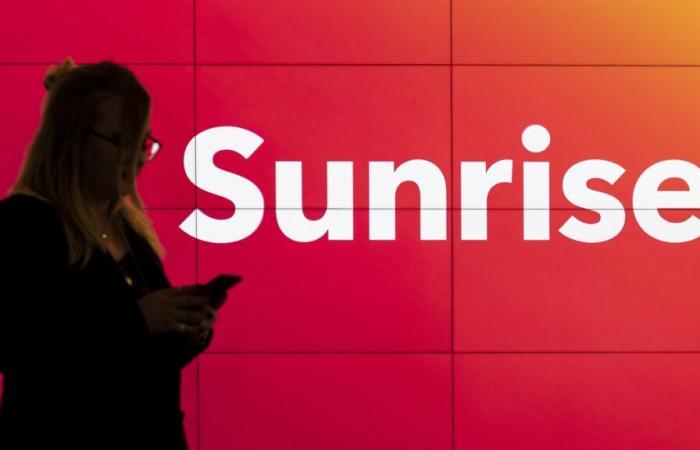Telecommunications group Sunrise entered the stock market on Friday.Image: KEYSTONE
Telecommunications giant Sunrise completed one of the biggest global IPOs of the year on Friday. However, large investors have been critical, and for private clients in Switzerland this could spell bad news.
18.11.2024, 11:5218.11.2024, 13:59
Stefan Ehrbar / ch media
In Switzerland, when a company goes public, its managers have the privilege of ringing a bell. Friday, November 15, at 9:01 a.m., Sunrise CEO André Krause received this honor. He was already familiar with this event: he had participated in Sunrise’s first IPO in 2015, at the time as financial director. In 2020, the London-based technology group Liberty Global bought Sunrise and delisted the company from the stock market:
“This time we intend to stay listed for longer”
Andre Krause
With an entry price of 44.75 Swiss francs in a rather gloomy stock market environment, André Krause can be satisfied. This represents a market capitalization of nearly 3.2 billion francs, making Sunrise one of the biggest IPOs of the year globally.
However, criticism has been expressed regarding the terms of the operation. Not all shareholders were treated the same. Shareholders of Liberty Global, the former owner of Sunrise, receive shares that are currently traded on the US technology exchange Nasdaq for around nine months before they can be converted into Sunrise shares listed on the SIX (ed. Swiss stock exchange).
No surge in prices expected
For Liberty’s main shareholders, John Malone and Mike Fries, a special category of shares with ten times greater voting rights was created. These shares are not publicly traded, allowing Malone and Fries to retain approximately 30% of Sunrise’s voting rights.
Although this practice is not illegal, it is also not exemplary. Many investors view the “one share, one vote” principle as essential because it ensures equality among shareholders. In an interview with the Trade newspaperrepresentatives of institutional investors criticized this plan, saying thatit could make Sunrise stock less attractive. Sunrise defends this structure by saying that it guarantees “continuity thanks to well-positioned main shareholders”.
Investors should not expect prices to surge. The evolution of Swisscom shares, the number one telecommunications company in Switzerland, is a good indicator: its price has been stagnating for years. The Swiss telecoms market is saturated and no major innovations are in sight. However, revenues are predictable and barriers to entry are high, making telecom stocks attractive to conservative investors.
The end of the price war?
To attract shareholders, Sunrise is banking on high dividends, like Swisscom. Sunrise expects a dividend yield of at least 4%well above the historical average of the Swiss stock market, which is around 3%. The company plans to allocate 240 million francs to these dividends this year, a large part of its free cash flow, estimated at around 360 million francs.
For Swiss clients, this IPO does not promise anything exciting. Sunrise will first have to focus on repaying the debts imposed by Liberty Global during the takeover. Management’s objective will probably be to improve profitability, notably through higher prices for personalized products. Conquering market share among private customers will undoubtedly become less of a priority. Sunrise has already started to withdraw from the price war.
The same goes for Swisscom. The semi-public telecoms provider has focused in recent months on improving its profitability, accepting the loss of market share on its main brand as price-sensitive customers turn to other options. “This is acceptable,” its CEO, Christoph Aeschlimann, said in February to CH Mediawatson publisher. In addition, Swisscom may soon have to mobilize resources for the acquisition of Vodafone Italia.
That leaves Salt, number three on the market. This company, owned by French investor Xavier Niel, plays the role of price breaker and has recently gained market share. However, in an oligopoly like the Swiss telecoms market, even Salt has no interest in offering lower prices than necessary.
The period of increasingly affordable mobile and Internet subscriptions could therefore be coming to an end.






